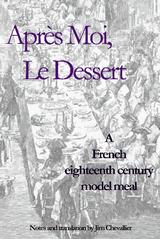CUSTOMS: Etrennes
The French word "Etrennes" once primarily referred to the New Year's gifts which, today, have been replaced by Christmas gifts (cadeaux de Noel). These days it more often means the kind of tip one leaves for the doorman or the postman during the holidays.
In 1933, one grumpy correspondent of the Intermediaire des Chercheurs asked, "From when does this disastrous habit date?" (1933 (294))
The answer is, from Roman times, and celebrations of the goddess Strenna (or Strenia):
January 1 Strenia
Strenia was a Sabine Goddess of the New Year, who gave her name to laurel boughs cut from a wood sacred to her. Eventually her name was applied to this holiday when the Romans decorated with palm, bay and laurel branches, hung with sweets, dates, figs and gilded fruit.
Strenia, the ancient Roman name for the New Years is still found in Sicily were groups go around singing La Strenna, wishing everyone Happy New Year and asking for treats. If refused, they curse the offender with a threatening verse. It also survives in France, where New Years gifts are called Etrennes.
http://www.schooloftheseasons.com/jandays1.html
This pagan origin may be one reason that gift-giving, which was still done on New Year's Day in France in the 19th century, was moved to Christmas, and given - for Christians - a more suitable origin:
Christmas Gift Giving
The giving of gifts to the poor was part of the Roman Saturnalia and was done over a three day period honoring the goddess Strenna. The Romans brought this tradition with them to the British Isles including Caledonia (Scotland) and Hibernia (Ireland). This custom gradually changed to be primarily the giving of gifts to children and family members. The Christian church adopted the custom as a symbol of the three Magi who brought gifts to the baby Jesus in Bethlehem.
http://greywolf.clanntartan.org/viewtopic.php?p=110&sid=7b928eb6b880d5b74bab15b552eb4631
NOTE: This site appears to be defunct as of 3-20-2006
Certainly, the practice was condemned early on. A sermon attributed to St. Augustine refers to 'diabolical New Year's Gifts" (diabolicas strenas). In 613, a Church council at Auxerre condemned the practice in similar language. In 1160, Maurice de Sully, the bishop of Paris who began Notre Dame, gave a sermon against it on the Day of the Circumcision (that is, January 1). He started by saying we needed to remove, not flesh, but every manner of sin, so that we are "spiritually circumcised" (!). Then he says:
There are numerous false Christians who want neither to circumcise nor to abandon their vice, who do their sorceries and their divinations according to pagan custom. And by their charms want to look into things to come, and put their belief in New Year's gifts and say that none will be rich nor happy if he is is not given gifts. Such people believe without fail that the devil is worth more to them than Jesus Christ, but they are quite blind if they are not careful, because they keep the law of Mohammed and are worse than Sarazins.
Intermediaire des Chercheurs, 1889 (28-29)
De Sully mentions, quite incidentally, two important facts. One is that these gifts were once considered 'lucky' in a superstitious way. The writer of the item also points out that the year had been said to begin at Easter, and so de Sully's statement that January 1 began the year is significant.
Clearly, in 1400, the Duke Louis d'Orleans had either not heard or not heeded such warnings. The Intermediare (1885 (750-751)) lists his gifts that year to Queen Isabeau (Isabelle?) and friends: jeweled items from one of the great jewelers of the time, to the tune of 4600 francs (equal to 45,000 francs in 1885). This included an image of Our Lady, surrounded by sapphires and pearls, given to the queen, and a large sword, covered with gold worked in Venetian style, the pommel encrusted with rubies and pearls, for... himself. And much more.
Contrast this with what he gave out the following year: twenty Brie cheeses.
A few centuries later, on December 4, 1592, a schoolboy wrote to his mother from Nimes: "Since we've moved on to the first class of M. Rulman, thank God, and the first of the year approaches, we must give New Year's gifts to our professors, particularly in this class in which one must give a good example to others."
The writer of the query asks if this habit was widespread, and if so, how long it went on under the Old Regime, but also suggests that the young man might just be writing his parents for money "like students today". IC, 1896 (571)
Finally, one of the more unusual - and historically resonant - etrennes was noted in the Intermediaire of 1891: "One hundred years ago, January 1, the conquerors of the Bastille came to solemnly offer to the dauphin, as a New Year gift, a domino set made of stones and marbles from the Bastille." (1891 (14)). Did anyone later look back on this as a bad omen: a gift made from a prison
to a boy who would die in one?





